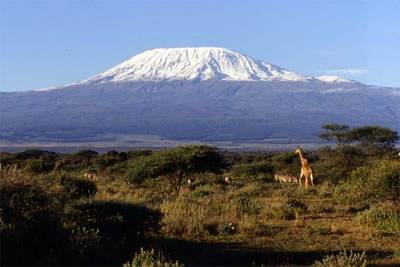The snows of Kilimanjaro are not the only victims of climate change and global warming. Recently, the Rwenzori Centenary Expedition found evidence that glaciers are receding on Africa’s largest alpine region, located in Uganda. The study by British and Ugandan scientists predicts that the equatorial icecaps will disappear within two decades because of global warming.

"Recession of these tropical glaciers sends an unambiguous message of a changing climate in this region of the tropics," said Richard Taylor of the University College London Department of Geography, who led the study funded by The Royal Geographical Society and The Royal Society. Taylor and his colleagues found that in the Rwenzori Mountains, also known as the Mountains of the Moon, there have been clear trends since the 1960s toward increased air temperature without significant changes in precipitation.
Still unknown is how this projected loss of the glaciers will affect tourism, as well as local traditional belief systems, that depend on the snow and ice, known locally as "Nzururu."
The Rwenzori Mountains, also known as the Mountains of the Moon, sit astride the border between the Democratic Republic of Congo and the Republic of Uganda.
"Considering the continent’s negligible contribution to global greenhouse-gas emissions," said Taylor, "it is a terrible irony that Africa, according to current predictions, will be most affected by climate change."
The Rwenzori Mountains National Park, in Uganda, is one of UNESCO's World Heritage sites. A scientific team has been charged with studying maps of the glaciers, comparing the cartography from 1955 to reports from 1906.
Photo Source: oldhippies.blogspot.com/2005/03/just-do-it.html
No comments:
Post a Comment